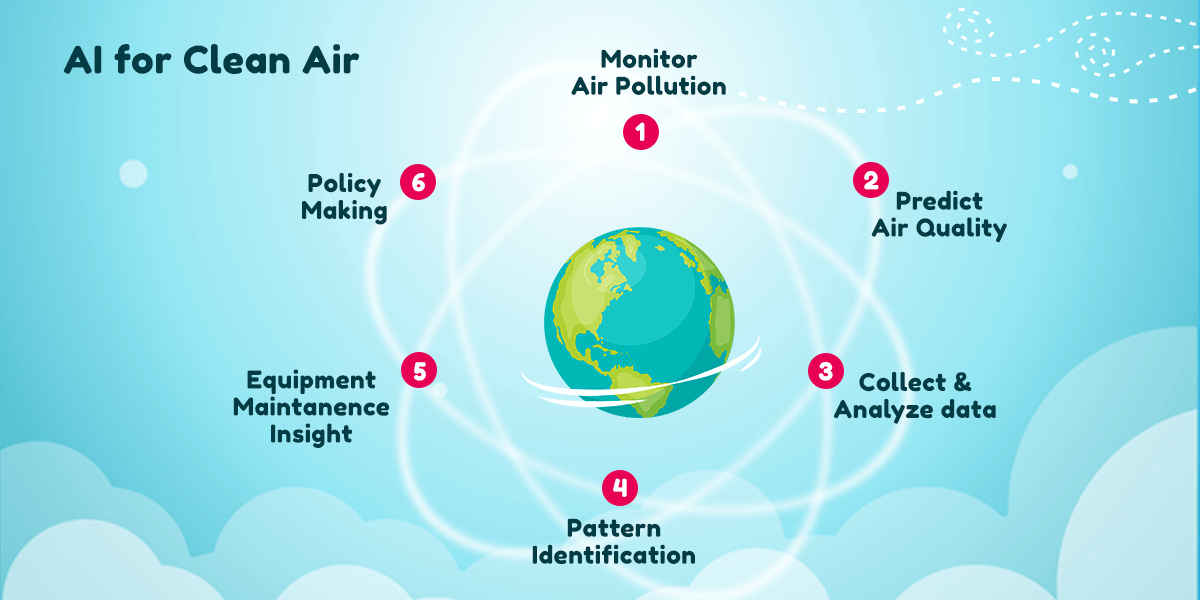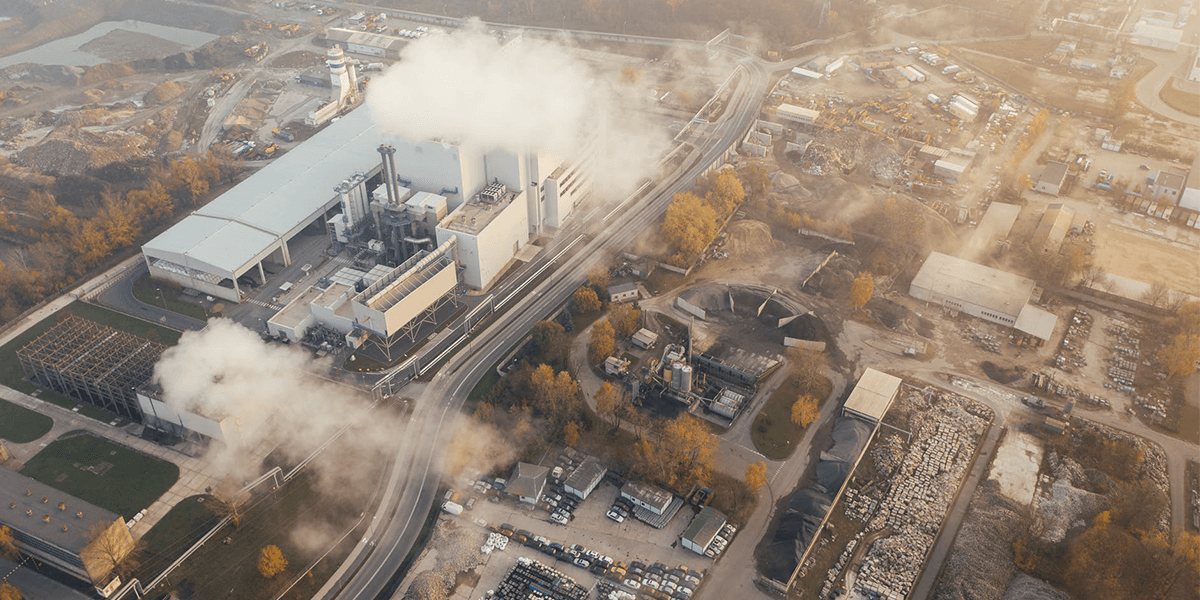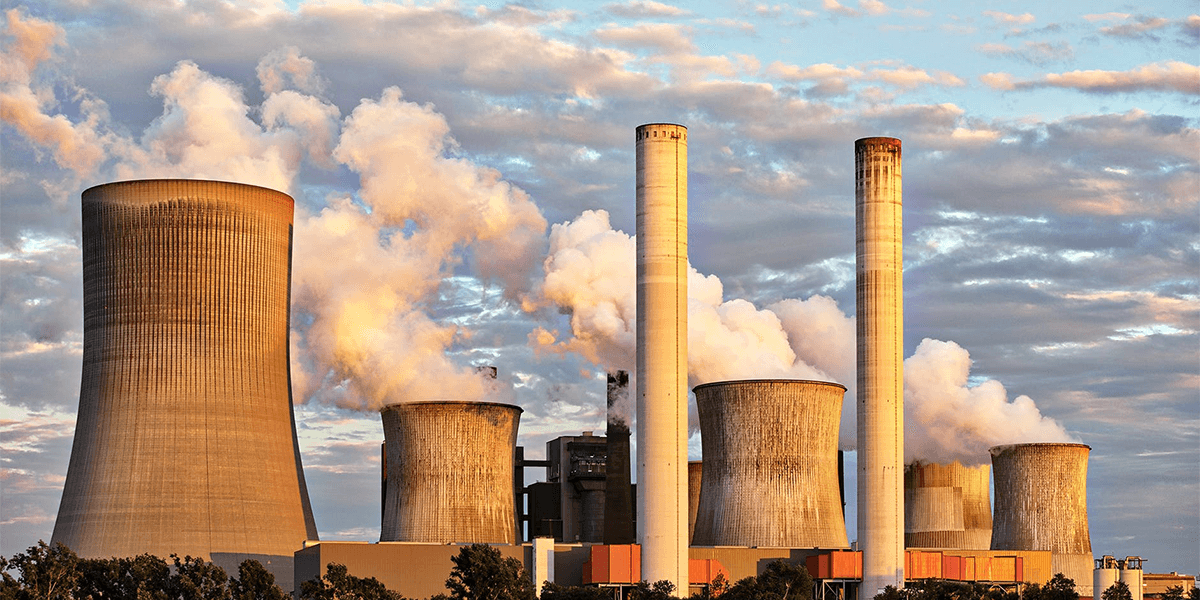People are taking a much keener interest in the level of pollution near their home and where they live. Millions of people are adversely affected by air pollution worldwide. Air pollution and climate change transcend national borders and the only way to respond to these global problems is with global solutions.
We need to find new solutions and new ways of doing things so that the world is sustainable, and obviously, that links through to our planning process. Artificial intelligence is a functional approach to handle and mitigate air pollution. AI can collect sensor and satellite data and help researchers in climate model blending.
Following are some of the applications of AI for cleaner air:
- Artificial intelligence has the capability of improving collection and qualitative measurement data. AI can accurately find patterns in data sets for better analysis.
- AI and IoT can provide tools to monitor air pollution in real-time. AI technology can discover sources of air pollution quickly and accurately. For example, the source of a gas leak in an industry can be identified using smart sensors and remedial measures can be applied effectively.
- AI can predict the air quality in the future and guides respective agencies to take necessary actions beforehand.
- Artificial intelligence can provide actionable maintenance insights for sensors and other equipment used.
- Government organizations and commercial enterprises can benefit hugely from AI technologies to monitor air purity levels and alert employees if air quality falls below a certain level.
- AI can help reduce air pollution in the automobile zone. The AI technologies enable autonomous cars to be fuel-efficient. AI-powered traffic lights can also contribute to minimize air pollution. We can use machine vision to adjust to the flow of traffic, minimizing the driving time.

Use Cases of AI for clean air:
- IBM researchers are working with the Beijing government to tackle air pollution and monitor environmental health using artificial intelligence. Researchers are leveraging machine learning and cognitive abilities to improve the quality of forecasts. AI can help anticipate the level of air pollution 10 days in advance. Scientists are integrating AI technologies to do scenario analysis and take required actions such as traffic control, plant shutdowns, and more.

- Scientists at Loughborough University in the UK have developed an AI-based model that predicts air quality ahead of time. The model analyzes sensor data and helps policymakers comprehend the causes and ways to reduce air pollution.
- Breeze Technologies is a startup located in Hamburg that develops AI-based air quality sensors. The company helps in understanding air quality, highlights factors influencing air quality, and provides measures of improvements using machine learning. Breeze technologies have collaborated with Microsoft to explore new ways of applying AI to mitigate air pollution.
- CleanAir.AI is a Canadian IoT startup that uses AI-based technologies to provide air filtration for homes and buildings. The company uses AI and IoT to provide actionable insights on air quality indoor and outside building, deliver cleaner air, and save energy.
- GSMA, a London-based company, is utilizing mobile, IoT and machine learning to address rising air pollution problems. They are taking assistance of the mobile industry and advanced machine learning techniques to gather data and finding patterns in data.
To Conclude
Air quality is an important issue today. With further advancements in the technology, IoT and AI can be utilized to reduce harmful emissions released in our surroundings in the first place. AI technology helps in tracing the source of pollution. Artificial intelligence can be used to maximum advantage to save our planet by minimizing the impact of climate change.

